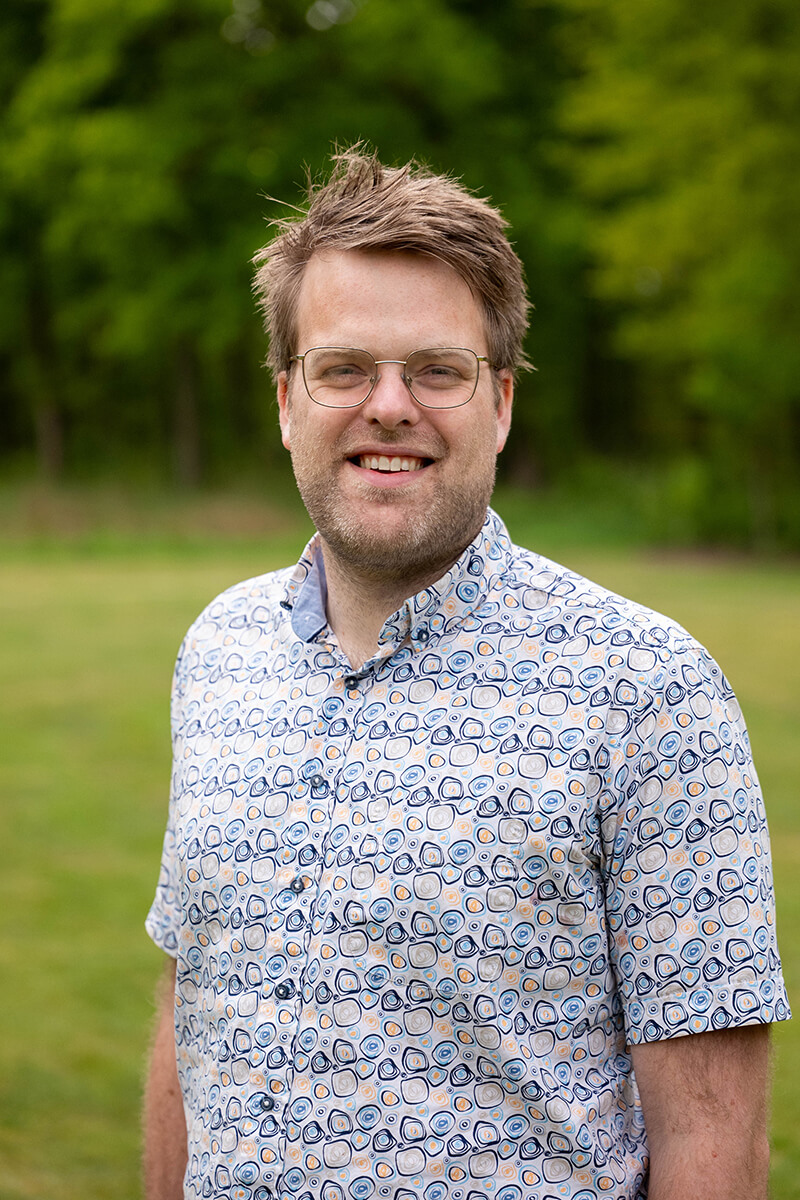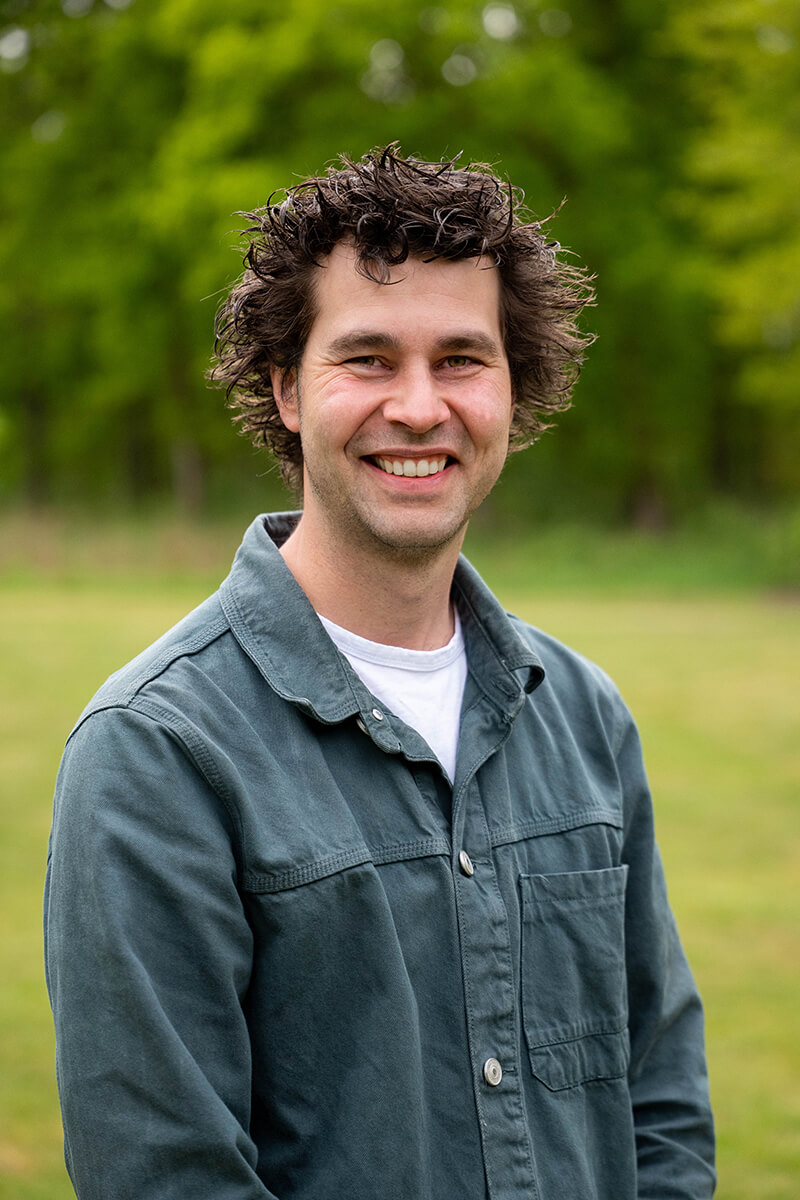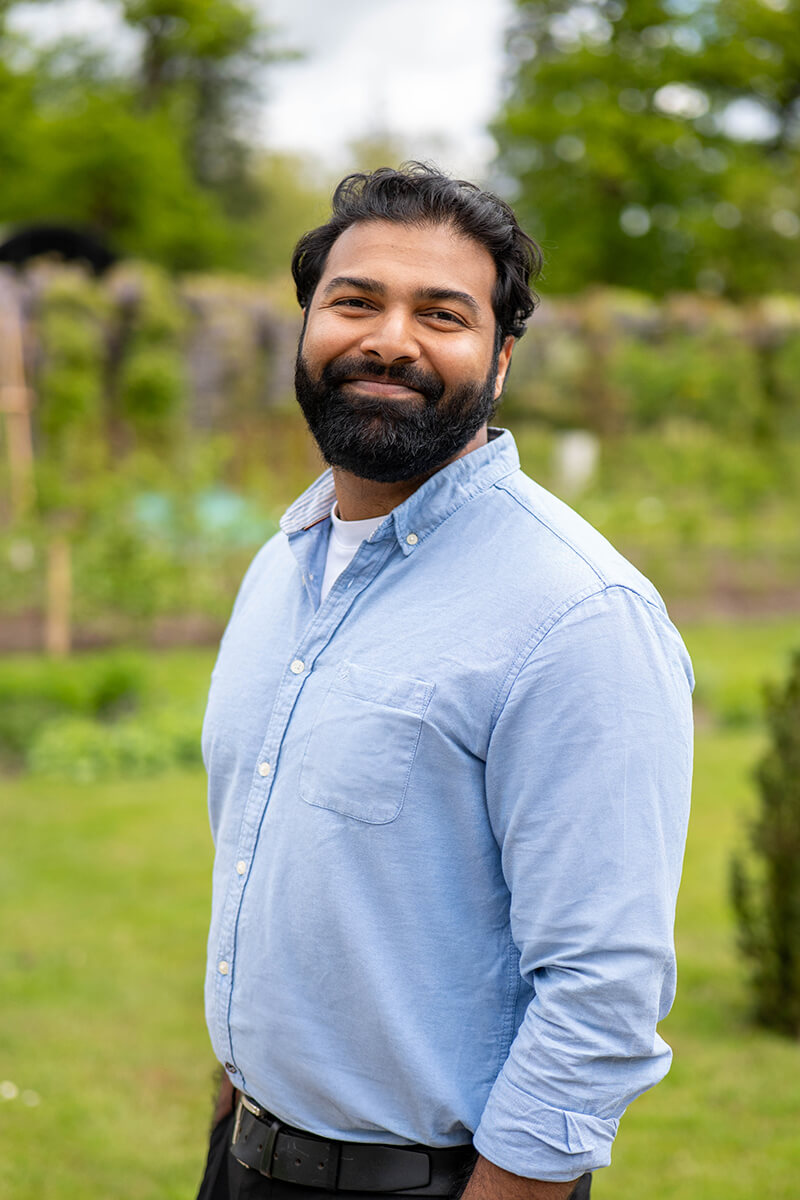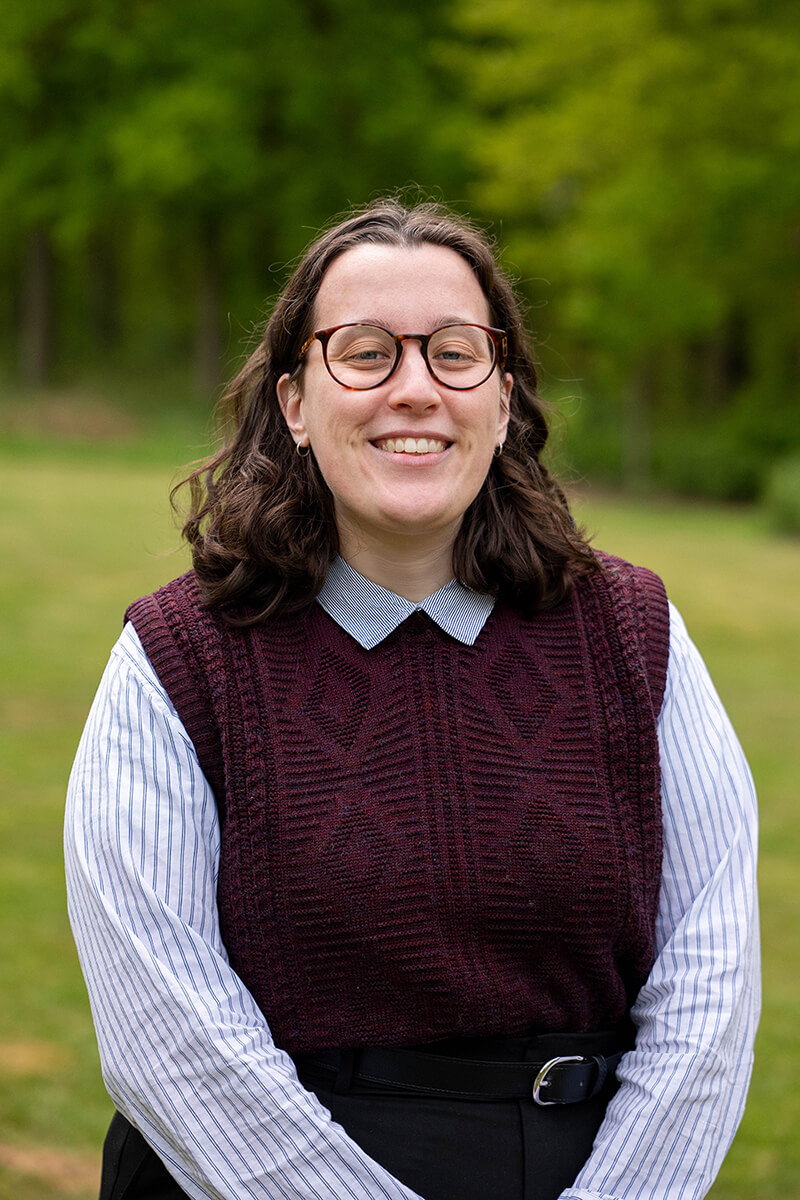Fast Hazard focuses on modelling climatological threats. The simulations give insight in area’s on the world that can be classified as dangereous area’s because of such threats. Also, within the applications mitigating measures can be modelled to explore solutions to reduce risks.
The business started with the Fast Flood application, which was invented by Bastian van den Bout while working at the University of Twente. With this model all types of flood depths can be explored, for example due to heavy rainfall, dam breaks, rising sea levels or high discharge rates in rivers. Working at a university brings multiple responsibilities, such as writing research proposals, guiding students, teaching, etc., while Bastian rather would focus on improving the Fast Flood model. With that longing for more time to program the seed was planted to start Fast Hazard B.V. and commercially exploit climatological threat models.
Bastian reached out to David Meijvogel. David and Bastian knew each other from high school and also studied theoretical physics at Utrecht University together. At this time, David already had a business for over 3 years in sustainable real estate. Part of this was to do climate risk analysis for buildings.
Bastian and David teamed up. Bastian as a flood expert, developing innovative applications. David with expertise in applied climate assessment and business development. After a lot of talks about the business model, market exploration and sharing philosophies with the business, Fast Hazard B.V. was founded in 2024 by Bastian van den Bout and David Meijvogel.

Bastian van den Bout is an expert on the development and application of physically-based models for natural hazards and climate risk.
He has a part-time function as assistant professor at Twente university, with a focus on multi-hazard modelling and risk.
He started his studies at Utrecht University studying physics and completing an Msc program in Earth Surface and Water. In 2016, he joined the faculty of Geo-Information Science and Earth Observation to pursue a doctoral study in integrated natural hazards. He obtained his doctoral degree with cum-laude distinction for his work on combining the physics of floods, landslides and coastal processes into a single mathematical model.
In the years after, he continued the innovative research on rapid hazard modelling tools, and applied the methods in research and consulting projects around the world for governments and multi-national organizations.
Recently, he has focused on the development of rapid simulation tools for natural hazards, which has resulted in the popular web-based simulation platforms Fast Flood and Fast Slide. He has a passion for integrating state-of-the-art technologies in natural hazards, and bringing fit-for-purpose solutions to communities at risk.

David Meijvogel has studied theoretical physics at Utrecht University. After obtaining his bachelors degree he moved on to the University of Twente to study Sustainable Energy Technology.
After getting his masters degree David started his career as an advisor in construction for sustainable real estate, mostly using the BREEAM certification method.
Also he started engineering installations for buildings. Later on, after four years, David moved more to the R&D sector when he started at Wageningen University and Research (WUR). At WUR David focused on renewable resources in the agricultural sector, field crops in particular.
Research topics were the possible application of hydrogen and electrical powered machinery, stabilizing the electricity grid with flexible processes on a farmyard and sustainable application of residual flows.
Parallel with this position David started a business, Etril B.V., focusing on sustainable real estate. After three years he left the WUR to fully focus on his business. This business focusses mainly on BREEAM certification and everything needed for such a certification process. One of the topics that is prominently present within these certification schemas is a climate risk analysis. Also, arising from EU Regulation, for the EU Taxonomy climate risk analyses are needed.
This is the area David operated in and for this also the Fast Flood application was used. After hearing about Bastians philosophy with the application, David was eager to join the journey to start Fast Hazard B.V. with Bastian.

Bastian van den Bout is an expert on the development and application of physically-based models for natural hazards and climate risk.
He has a part-time function as assistant professor at Twente university, with a focus on multi-hazard modelling and risk.
He started his studies at Utrecht University studying physics and completing an Msc program in Earth Surface and Water. In 2016, he joined the faculty of Geo-Information Science and Earth Observation to pursue a doctoral study in integrated natural hazards. He obtained his doctoral degree with cum-laude distinction for his work on combining the physics of floods, landslides and coastal processes into a single mathematical model.
In the years after, he continued the innovative research on rapid hazard modelling tools, and applied the methods in research and consulting projects around the world for governments and multi-national organizations.
Recently, he has focused on the development of rapid simulation tools for natural hazards, which has resulted in the popular web-based simulation platforms Fast Flood and Fast Slide. He has a passion for integrating state-of-the-art technologies in natural hazards, and bringing fit-for-purpose solutions to communities at risk.

David Meijvogel has studied theoretical physics at Utrecht University. After obtaining his bachelors degree he moved on to the University of Twente to study Sustainable Energy Technology.
After getting his masters degree David started his career as an advisor in construction for sustainable real estate, mostly using the BREEAM certification method.
Also he started engineering installations for buildings. Later on, after four years, David moved more to the R&D sector when he started at Wageningen University and Research (WUR). At WUR David focused on renewable resources in the agricultural sector, field crops in particular.
Research topics were the possible application of hydrogen and electrical powered machinery, stabilizing the electricity grid with flexible processes on a farmyard and sustainable application of residual flows.
Parallel with this position David started a business, Etril B.V., focusing on sustainable real estate. After three years he left the WUR to fully focus on his business. This business focusses mainly on BREEAM certification and everything needed for such a certification process. One of the topics that is prominently present within these certification schemas is a climate risk analysis. Also, arising from EU Regulation, for the EU Taxonomy climate risk analyses are needed.
This is the area David operated in and for this also the Fast Flood application was used. After hearing about Bastians philosophy with the application, David was eager to join the journey to start Fast Hazard B.V. with Bastian.

Faheed Jasin studied Geo-information Science and Earth Observation at the University of Twente (ITC), where he focused on the impacts of compounding hazards such as heatwaves and floods. With a background in remote sensing and disaster risk reduction, he brings a multidisciplinary approach to climate resilience and hazard modelling.
He began his career working with organizations such as the Netherlands Red Cross and the Kerala State Disaster Management Authority, where he contributed to drought assessments, downscaling climate projections, and integrating risk information into local planning processes.
At Fast Hazard, Faheed works as a climate hazards consultant and programmer. He has contributed to flood modelling and climate risk assessments for clients such as the World Bank, Global Centre for Adaptation, African Development Bank, and The Nature Conservancy. His work includes the development of geospatial tools, technical support, and international training workshops.
Faheed is particularly interested in compound climate extremes and physically based modelling. He continues to refine the in-house flood modelling software, applying data-driven methods to support anticipatory action and disaster preparedness.

Katherine completed a master’s in Spatial Engineering at the University of Twente, focusing on climate resilience and disaster risk reduction. As a part of her MSc research, she worked on integrating ensemble forecasting into the FastFlood platform, using historical hurricane rainfall records for the island of Dominica to evaluate its efficacy and prediction capabilities.
She worked at Deltares as a research intern with the FloodAdapt team, where she developed a risk estimation module in Python, which used Monte Carlo simulations and global sensitivity analyses to assess flood model uncertainty and performance.
She works as a climate hazards consultant and programmer at Fast Hazard. She contributes to the development and commercialization of the FastFlood and FastSlide tools, including their use in international projects such as PPRD-MED. Her work involves flood simulation, calibration, and supporting stakeholders in interpreting and operationalizing model results.
She brings strong technical skills in GIS, remote-sensing, and programming, and is particularly passionate about the use of spatial data and modelling to address complex climate challenges and supporting disaster risk reduction.

Faheed Jasin studied Geo-information Science and Earth Observation at the University of Twente (ITC), where he focused on the impacts of compounding hazards such as heatwaves and floods. With a background in remote sensing and disaster risk reduction, he brings a multidisciplinary approach to climate resilience and hazard modelling.
He began his career working with organizations such as the Netherlands Red Cross and the Kerala State Disaster Management Authority, where he contributed to drought assessments, downscaling climate projections, and integrating risk information into local planning processes.
At Fast Hazard, Faheed works as a climate hazards consultant and programmer. He has contributed to flood modelling and climate risk assessments for clients such as the World Bank, Global Centre for Adaptation, African Development Bank, and The Nature Conservancy. His work includes the development of geospatial tools, technical support, and international training workshops.
Faheed is particularly interested in compound climate extremes and physically based modelling. He continues to refine the in-house flood modelling software, applying data-driven methods to support anticipatory action and disaster preparedness.

Katherine completed a master’s in Spatial Engineering at the University of Twente, focusing on climate resilience and disaster risk reduction. As a part of her MSc research, she worked on integrating ensemble forecasting into the FastFlood platform, using historical hurricane rainfall records for the island of Dominica to evaluate its efficacy and prediction capabilities.
She worked at Deltares as a research intern with the FloodAdapt team, where she developed a risk estimation module in Python, which used Monte Carlo simulations and global sensitivity analyses to assess flood model uncertainty and performance.
She works as a climate hazards consultant and programmer at Fast Hazard. She contributes to the development and commercialization of the FastFlood and FastSlide tools, including their use in international projects such as PPRD-MED. Her work involves flood simulation, calibration, and supporting stakeholders in interpreting and operationalizing model results.
She brings strong technical skills in GIS, remote-sensing, and programming, and is
particularly passionate about the use of spatial data and modelling to address complex climate challenges and supporting disaster risk reduction.